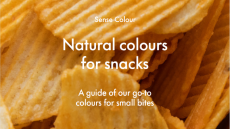Little capers pack a big antioxidant punch
rich source of antioxidants, and exhibits protective benefits even
when consumed in the small concentrations used for flavouring, says
a new study from Italy.
Extracts from capers were found to have significant antioxidant effects comparable to vitamin E, said the researchers in the Journal of Agricultural and Food Chemistry. Three and a half micromoles of gallic acid equivalents (GAE) of caper extract produced the same antioxidant effect as five micromoles GAE of vitamin E, reported the researchers from the University of Palermo. When added to grilled ground-turkey, the researchers found that caper-extract helped prevent the formation of certain by-products of digested meat that have been linked by others to an increased risk of cancer and heart disease. "It may be worthwhile to mention that the antioxidative activity was evident at a caper/red meat ratio of 1:10 (w/w), which is consistent with the use of the caper buds as a cooking flavouring," wrote the researchers, led by Maria Livrea. With reference to one 8.6 gram serving of capers, the nutritional content was characterised to show a rutin content of 13.76 mg, an isothiocyanates content of 42.14 micromoles, a total phenols content of 4.19 mg of (GAE), "According to our measurements, one serving of caper [8.6 g (41)] provides an amount of rutin no less than that of a 100 g serving of fried onions, considered to be a good dietary source of such flavonoid," wrote the authors. The antioxidant potential of the serving was 25.8 micromoles of Trolox equivalents, measured using the [2,2'-azinobis(3-ethylbenzothiazoline-6-sulfonic acid)] diammonium salt (ABTS) cation radical decolourisation assay. This value, however, would not give capers a place on the podium for antioxidant capacity, when compared to other fruit and vegetables. Nevertheless, when added to red meat subjected to simulated gastric digestion, they found that extracts with concentrations as low as 70 micromoles GAE were effective in preventing the oxidation of lipids. "Lipid oxidation during digestion co-oxidises antioxidant vitamins, thus affecting the nutritional value of various foods, and generates a number of cytotoxic and mutagenic compounds including hydroperoxides, malondialdehyde, and hydroxy alkanals," wrote the researchers. "This contributes to a postprandial oxidative stress, a condition important in modulating cardiovascular risk. "By inhibiting the accumulation of harmful lipid oxidation products and increasing the level of bioavailable vitamin E, caper may have beneficial health effects, especially for people whose meals are rich in fats and red meats," they concluded. Antioxidant revenues are predicted to grow from 46m ($55m) in 2004 to 58m ($70m) in 2008, according to Frost and Sullivan. Source: Journal of Agricultural and Food Chemistry Published on-line, doi: 10.1021/jf0714113 "Bioactive Components of Caper (Capparis spinosa L.) from Sicily and Antioxidant Effects in a Red Meat Simulated Gastric Digestion" Authors: L. Tesoriere, D. Butera, C. Gentile, M.A. Livrea























